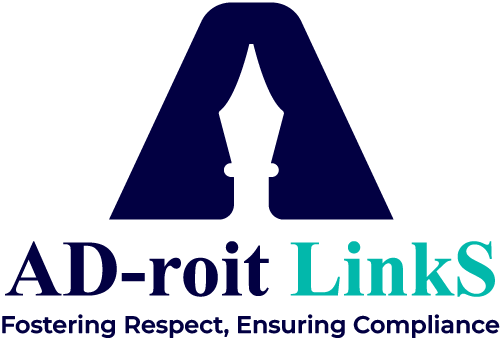- 20 Apr 2024
- By: Albina Sebastian
AI AND EMERGING ISSUES

Artificial Intelligence (AI) has emerged as a transformative technology with far-reaching implications across various sectors. From healthcare to finance, education to manufacturing, AI is revolutionizing the way we live and work. However, as with any disruptive innovation, AI also brings forth significant challenges that must be addressed, particularly in the realm of legal and ethical frameworks.
Data Privacy and Security Concerns
One of the primary challenges associated with AI is the collection, processing, and storage of vast amounts of data, including personal and sensitive information. AI systems rely heavily on data to train their algorithms, and the improper handling of this data can lead to privacy breaches and security vulnerabilities.
India’s existing data protection laws, such as the Information Technology Act, 2000, and the Digital Personal Data Protection Act, 2023, aim to safeguard individuals’ privacy rights. However, the rapid evolution of AI technologies may necessitate updates and amendments to these laws to keep pace with the changing landscape.
Addressing data privacy and security concerns will require a multi-faceted approach, including:
– Strengthening data protection laws and enforcing strict compliance measures
– Implementing robust cybersecurity measures to protect AI systems and data.
– Promoting ethical data collection and usage practices.
– Enhancing transparency and accountability in AI systems’ data handling processes.
Ethical and Moral Considerations
The rapid advancement of AI raises numerous ethical and moral questions that must be addressed. Issues such as the potential displacement of human workers, the development of autonomous weapons systems, and the blurring lines between human and machine decision-making processes all carry profound ethical implications.
India, with its rich cultural heritage and diverse value systems, must engage in a comprehensive dialogue to establish ethical frameworks and guidelines for the responsible development and deployment of AI technologies. This dialogue should involve stakeholders from various sectors, including policymakers, industry leaders, ethics experts, and civil society organizations.
Addressing ethical and moral considerations may involve:
– Establishing ethical advisory boards and committees to provide guidance on AI development
– Developing ethical guidelines and principles for AI systems, particularly in sensitive domains like healthcare and law enforcement
– Promoting public awareness and education initiatives to foster informed discussions on the ethical implications of AI
– Encouraging the incorporation of ethical considerations into AI curriculum and training programs.
Intellectual Property and Liability
As AI systems become more sophisticated and capable of generating creative works or making critical decisions, questions arise regarding intellectual property ownership and liability for any potential harm caused by these systems.
India’s existing intellectual property laws, such as the Copyright Act and the Patents Act, may need to be updated to account for AI-generated works and inventions. Additionally, liability frameworks must be established to determine responsibility in cases where AI systems cause unintended harm or damage.
Addressing intellectual property and liability concerns may involve:
– Reviewing and updating intellectual property laws to account for AI-generated works and inventions
– Developing clear liability frameworks and guidelines for AI systems, including identifying responsible parties and establishing accountability measures
– Encouraging the adoption of risk assessment and mitigation strategies for AI systems.
– Promoting public-private partnerships and collaborations to develop best practices and industry standards.
Governance and Regulatory Frameworks
As AI technologies continue to evolve and permeate various sectors, there is a pressing need for comprehensive governance and regulatory frameworks to ensure their responsible development and deployment.
India has taken initial steps towards establishing governance mechanisms for AI, such as the formation of the National Strategy for Artificial Intelligence by NITI Aayog. However, more robust and comprehensive governance structures are necessary to address the multifaceted challenges posed by AI.
Effective governance and regulatory frameworks for AI may involve:
– Developing a dedicated AI policy and regulatory framework, addressing various aspects such as data privacy, algorithmic fairness, ethical considerations, and liability.
– Establishing a centralized governing body or council to oversee and coordinate AI-related initiatives and policies.
– Encouraging cross-sector collaboration and stakeholder engagement in the development of AI governance frameworks.
– Promoting international cooperation and harmonization of AI regulations to facilitate cross-border data flows and technology transfer.
CONCLUSION
The rapid advancement of AI in India presents both significant opportunities and challenges. By proactively addressing emerging issues surrounding data privacy, algorithmic bias, ethical considerations, intellectual property, liability, and governance, India can position itself as a leader in the responsible development and deployment of AI technologies.
Collaboration between policymakers, industry leaders, researchers, and civil society organizations is crucial to navigate these challenges and harness the full potential of AI while safeguarding fundamental rights and upholding ethical principles. Through thoughtful and comprehensive legal and regulatory frameworks, India can foster an environment that nurtures innovation while promoting trust, transparency, and accountability in the AI ecosystem.

